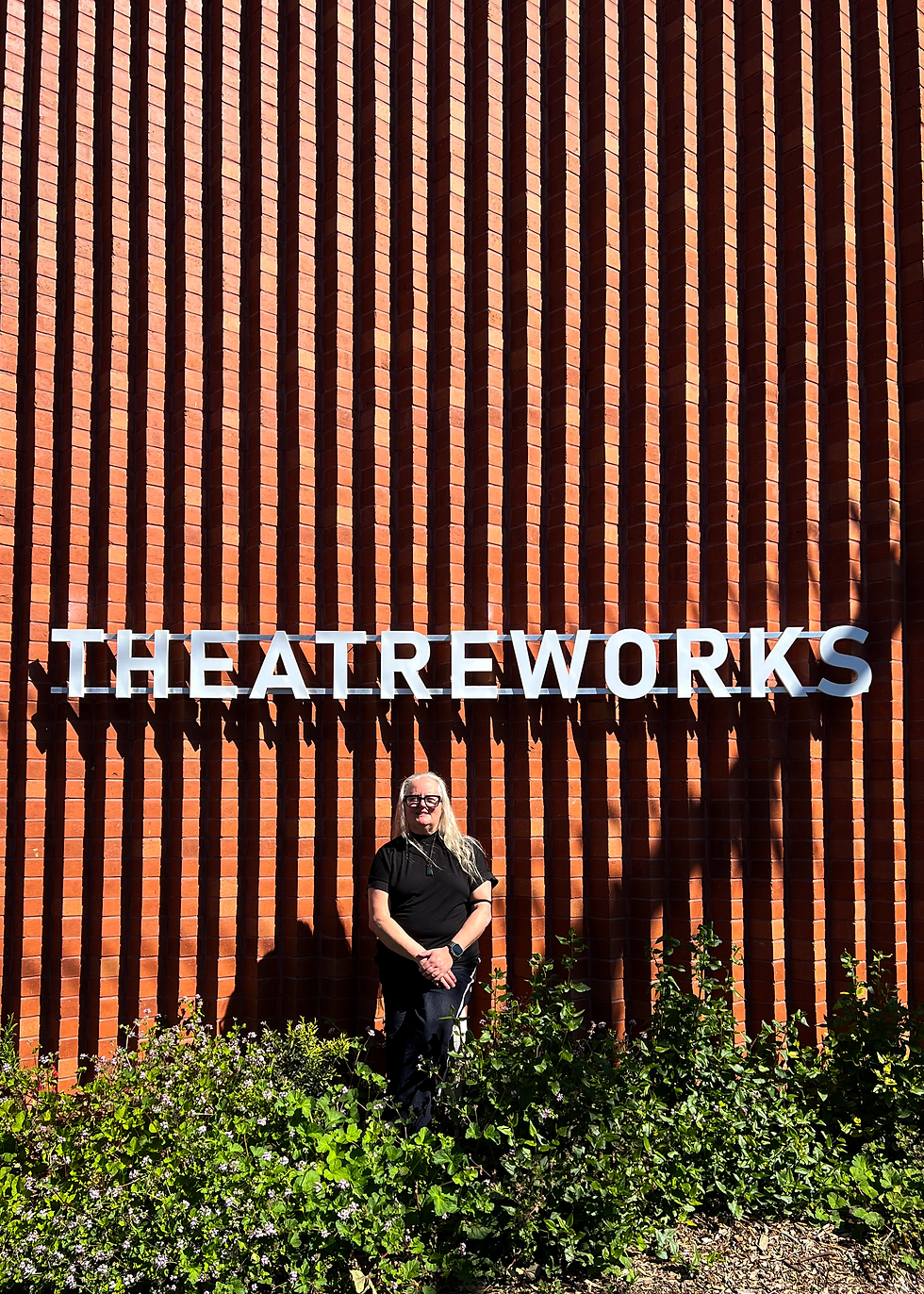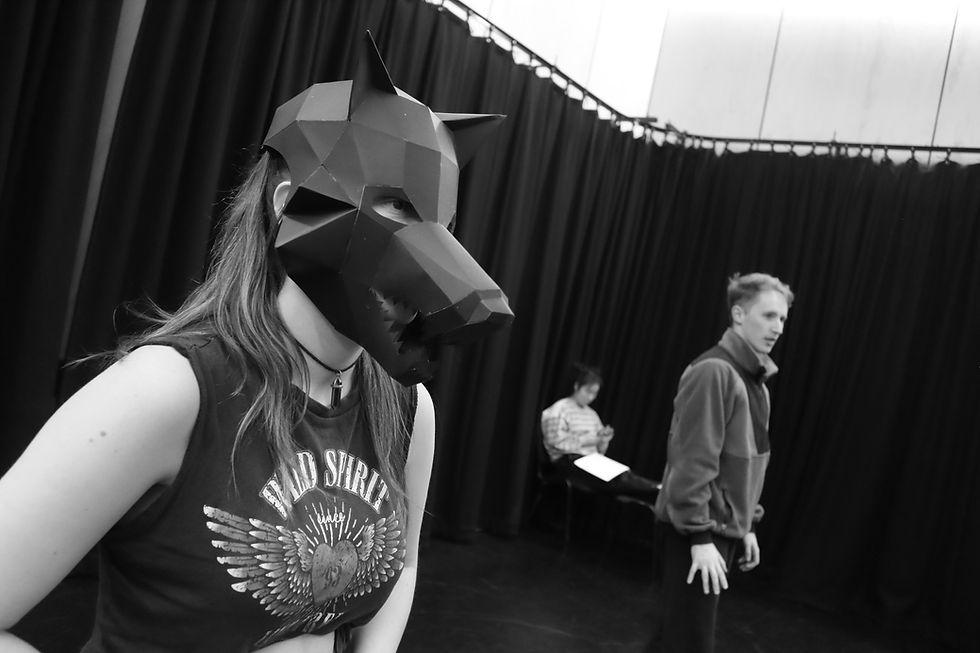In conversation with Jodi Gallagher
- TW
- Aug 11, 2023
- 4 min read
"My focus is identity and crisis – and the lengths to which people will go to try and fInd hope in the midst of despair." Melbourne writer, Jodi Gallagher, reFlects on her latest play 'Prophet' premiering at Theatre Works 23 August - 2 September.

Q: What was the key inspiration behind the idea of Prophet?
A: I’ve always been interested in faith, and belief – and the ways people weave their faith into their everyday lives. I’m talking about faith in the broadest sense here – not just religious belief, but faith in a political ideal, faith in a particular leader, faith in the stock market, the press, astrology – anything really. I’ve had some serious arguments with people when I’ve said that their loudly stated atheism was just another faith. Without a deep belief in something, why keep going? Even the most basic belief in the need to survive – all the way to the storied faiths – in love, in a deity, that humans are essentially good. We’re living in times when faith and politics are enmeshed - though, when was it any different? But our particular moment in history is witnessing both a breakdown in the basic ideas of what’s real and what’s a lie, and a rise in religious fundamentalism that wants to crush human rights. So – enter my Messiah. Is he the real deal? And if his presence is co-opted into a political agenda? We’re also facing the possibility – or likelihood – of extinction. What happens to the individuals caught up in this maelstrom?
Q: What are some key themes you wanted to explore in this work?
A: The play began with my interest in the aftermath of catastrophes – false messiahs usually appear after a catastrophic event that has destroyed – or almost destroyed – a community. A contemporary development of this situation is the manipulation of the aftermath of a disaster – the dividing up of the spoils, the contracts, the rebuilding, the rezoning, the commissions for public buildings. My research focussed on the inhumanity, ignorance and violence that characterised the response to Hurricane Katrina in New Orleans, and the subsequent ineptitude and manipulation of the rebuilding process; the Haitian earthquake and its aftermath – again, the criminal inefficiency, delays and political manipulations (hardly new to Haiti); and obviously the history of intifada and terrorism in Palestine and Israel, given that the central focus of the story is the coming of a messiah and the words of his prophet. My focus is identity and crisis – and the lengths to which people will go to try and find hope in the midst of despair. And then if that hope turns out to be yet another lie – yet more political expediency? Since the script was written there are examples of the failure of disaster relief much closer to home - the response to bushfires and floods has been less than effective - and has become a marker in a political game. Who is going to hold that hose? And which god will intervene? Q: What do you most enjoy about writing for the stage?
A: There’s nothing better than watching actors find something in your text that you had no idea was there. It’s terrifying in lots of ways – when an artist turns to you and asks questions that you supposedly should be able to answer – after all, you wrote the thing – but they’ve spun it into a completely different place. And – I think I’m quoting someone here, but I can’t remember who – if you write a novel, you’ll never be there to witness a reader throwing your book against the opposite wall in frustration. Or crying because you’ve touched something in them. Writing for performance is the only medium where you get to find out what works while you’re sitting right there in the audience. It can cut both ways, obviously. As an artist, you live and die with those moments. Good and bad.
Q: What is the best piece of advice you have received as a playwright that you would share with emerging artists?
A: This is difficult, because there’s always so many people happy to tell you what you’re doing wrong – or right. So, I’ll quote a playwright who left us a few years ago, far too young, and I miss him – Michael Gurr. Michael was so supportive of me when I started to work in the theatre, and there was one conversation I’ll always remember, because I’ve found it to be so true. He told me to listen to the people who have skin in the game. Listen to your colleagues, the actors, the directors, the designers, the artists. Audiences are unpredictable. Critics have agendas. Funding bodies are – well – funding bodies. Find your artistic family, the people who respect your vision and want it to succeed. Another playwright, John Romeril, once told me the job of the playwright is to give the actors something to do. I try to do exactly that. And from me – because I’ve been at this a while now – know your history. Not just the Greeks, not just the Russians, the Americans, the Brits. That’s all important, obviously. But read Australian theatre history. Australian plays. It’s just possible that a play by Michael Gurr – Crazy Brave, for example, has more to say to an Australian artist than whatever they put on in Berlin last week. See? Everyone has an agenda.
Q: What kind of conversations do you hope Prophet would ignite amongst audiences post-show?
A: What’s true? What’s a lie? What do I believe in? The big questions. How are we to live? What is to be done? How do I live in this beautiful and terrible world? How do I remember to feel joy when every day the news threatens to bring me completely undone? How can I – this small, quiet voice – take action? PROPHET
by Jodi Gallagher 23 August - 2 September | Theatre Works





Comments